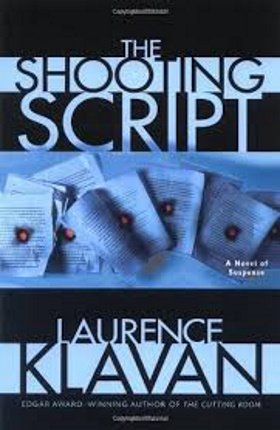He scampered down the rungs, his braces reflecting in the harsh store light. His red Keds hit the floor with a thud.
“That a gift for me?”
“Hardly. I need a favor.”
“What’s in it for Kent?”
I paused, not even having considered reciprocation. Then, thinking fast, I offered him something I had no idea I could get. “Gratey McBride’s autograph.”
Kent stopped in his tracks. I knew that the precocious lad identified heavily with her similar role in Macaroon Heart. I also knew that neither Troy nor Thor nor Marthe had a clue as to where the poor soul was.
“Sold, she’s my girl,” he said, surprised. “If you’re not shoveling coal, that is.”
“I’m not, I’m for real,” I lied. “I’ll also throw in—” And here I named a figure—smaller than if I hadn’t promised him anything, and pretty much all I had left from Abner.
“Cool.”
“Now, I need someplace safe to watch a tape.”
Kent gave an intrigued look at the tape I was slowly revealing. Then he was diverted by a customer at the desk.
“Hey, don’t rent that!” he yelled, pointing to the teen comedy the guy was holding. “It sucks! Rent something good!”
I smiled a little and shook my head. Kent wouldn’t last much longer at work than he did at school, I figured. The customer sheepishly returned his tacky choice, and the kid checked out my goods again.
“What is it, Ambersons? Oh, sorry, I heard you already found that. It must be Clown then.”
Kent was only kidding, suggesting the least plausible possibility, but I was a little rattled nonetheless. I tried to appear unruffled.
“Right, Clown,” I said.
“Did you know Jerry’s first film without Dean, The Delicate Delinquent, was supposed to have been a Martin and Lewis picture? But instead—”
“Darren McGavin played Dean’s part. Don’t mess.”
Like any preteen worth his salt, Kent liked yanking his elders’ chains. He wasn’t used to being yanked back. So now he bowed, broadly and embarrassingly, in deference to me.
“There’s only one thing,” I said. “You can’t watch with me. If you do, no Gratey and no dough. Understood?”
“Oh, I get it. It’s footage of you and some chick, back in …” he looked at the ancient tape, “precable times.” Kent made what he thought was a hand gesture, signifying sex. For all his attitude, he was still thirteen, and it looked like he was milking a fly. “Relax. I won’t peek.”
I was about to hand him the tape and a small down payment. But Kent started haranguing another customer.
“Hey, you! I told you guys, you can’t come in here! Now beat it!”
It wasn’t a tourist in loud shorts, like the last time. It was one of his competitors for Promenade space: a homeless man. He was young, thin, and unkempt, with a matted black beard and long and stringy hair that hid his face. Turning away, swiftly, he grunted, offended.
But he didn’t leave.
“I said,” Kent yelled, “get lost!”
“Look,” I said, “I don’t have much time, so—”
Kent was oblivious; he was too busy marching to the man. Stopping before him, he looked his most childish as he tried to be most tough.
“This is a place of—”
The man shot out a dirty hand and grabbed hold of Kent’s collar. Before I knew what was happening, he had lifted him by his Plan 9 from Outer Space T-shirt and tossed him right into the nearest wall of tapes. Kent smashed into a shelf of GUILTY PLEASURES and dropped like a scrawny doll onto the floor.
Then the man turned slowly toward me.
I LOOKED AROUND. OUTSIDE THE STORE, THE WHOLE WORLD SEEMED TO BE passing by. Inside, there was just the three of us.
“Hey!” I said, as I always seemed to.
I meant to advance; instead I backed away. The guy was coming for me, throwing his arms around, smashing whatever was in his path. A Twilight Zone box set flew and fell, deafeningly. The head of a Jim Carrey cutout was severed. A mobile of Mickey Mouse was yanked from the ceiling and stomped.
I was next in line.
My allegiances were confused: Should I save Kent, myself, or the tape? The decision was not made by me. Springing from the floor with the resilience of youth, Kent came barreling toward the guy from behind. The guy, for his part, reached out and took hold of my tape.
“Hey!”
The man and I had a tug-of-war for the prize; he bested me with one great yank. At the same time, he turned and caught the advancing kid with an elbow to the sternum. Kent went down a second time. Then, stuffing the VHS beneath his dirty shirt, the homeless man made for the front door.
I shot after him, stepping over my younger pal.
“Sorry,” I said.

























